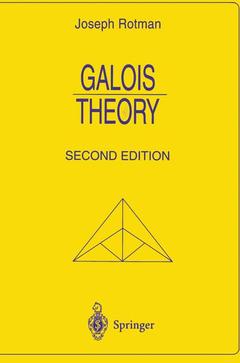Multicriteria Decision Making, 1999 Advances in MCDM Models, Algorithms, Theory, and Applications International Series in Operations Research & Management Science Series, Vol. 21
Langue : Anglais
Coordonnateurs : Gal Tomas, Stewart Theodor, Hanne Thomas

At a practical level, mathematical programming under multiple objectives has emerged as a powerful tool to assist in the process of searching for decisions which best satisfy a multitude of conflicting objectives, and there are a number of distinct methodologies for multicriteria decision-making problems that exist. These methodologies can be categorized in a variety of ways, such as form of model (e.g. linear, non-linear, stochastic), characteristics of the decision space (e.g. finite or infinite), or solution process (e.g. prior specification of preferences or interactive). Scientists from a variety of disciplines (mathematics, economics and psychology) have contributed to the development of the field of Multicriteria Decision Making (MCDM) (or Multicriteria Decision Analysis (MCDA), Multiattribute Decision Making (MADM), Multiobjective Decision Making (MODM), etc.) over the past 30 years, helping to establish MCDM as an important part of management science. MCDM has become a central component of studies in management science, economics and industrial engineering in many universities worldwide.
Multicriteria Decision Making: Advances in MCDM Models, Algorithms,Theory and Applications aims to bring together `state-of-the-art' reviews and the most recent advances by leading experts on the fundamental theories, methodologies and applications of MCDM. This is aimed at graduate students and researchers in mathematics, economics, management and engineering, as well as at practicing management scientists who wish to better understand the principles of this new and fast developing field.
Multicriteria Decision Making: Advances in MCDM Models, Algorithms,Theory and Applications aims to bring together `state-of-the-art' reviews and the most recent advances by leading experts on the fundamental theories, methodologies and applications of MCDM. This is aimed at graduate students and researchers in mathematics, economics, management and engineering, as well as at practicing management scientists who wish to better understand the principles of this new and fast developing field.
1. Decision-Aiding Today: What Should We Expect.- 2. Theory of Vectormaximization: Various Concepts of Efficient Solutions.- 3. Duality in Multi-objective Optimization.- 4. Preference Relations and MCDM.- 5. Normative and Descriptive Aspects of Decision Making.- 6. Meta Decision Problems in Multiple Criteria Decision Making.- 7. Sensitivity Analysis in MCDM.- 8. Goal Programming.- 9. Reference Point Approaches.- 10. Concepts of Interactive Programming.- 11. Outranking Approach.- 12. Multi-Criteria Problem Structuring and Analysis in a Value Theory Framework.- 13. Fundamentals of Interior Multiple Objective Linear Programming Algorithms.- 14. The Use of Rough Sets and Fuzzy Sets in MCDM.- 15. Use of Artificial Intelligence in MCDM.- 16. Evolutionary Algorithms and Simulated Annealing for MCDM.
'I highly recommend the book to a broad audience of graduate students and scientists in operations research, economics, management sciences, and engineering, and to practitioners interested in following recent developments in MCDM.'Interfaces, 31:3(2001)
Date de parution : 10-2012
Ouvrage de 538 p.
15.5x23.5 cm
Mots-clés :
algorithms; calculus; linear optimization; multi-objective optimization; optimization
© 2024 LAVOISIER S.A.S.



